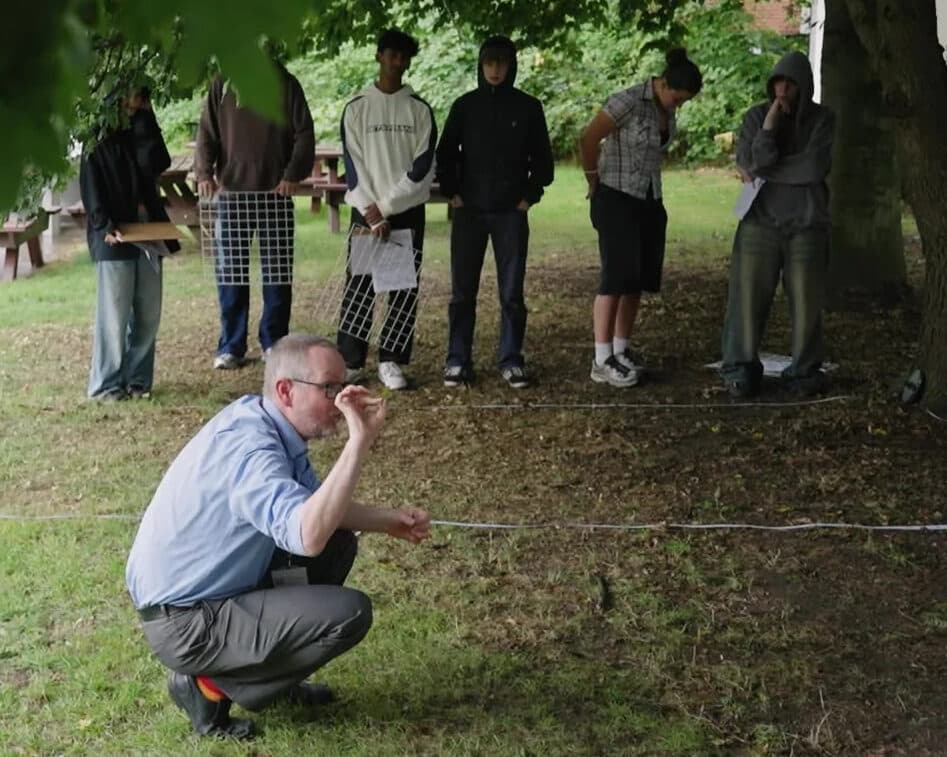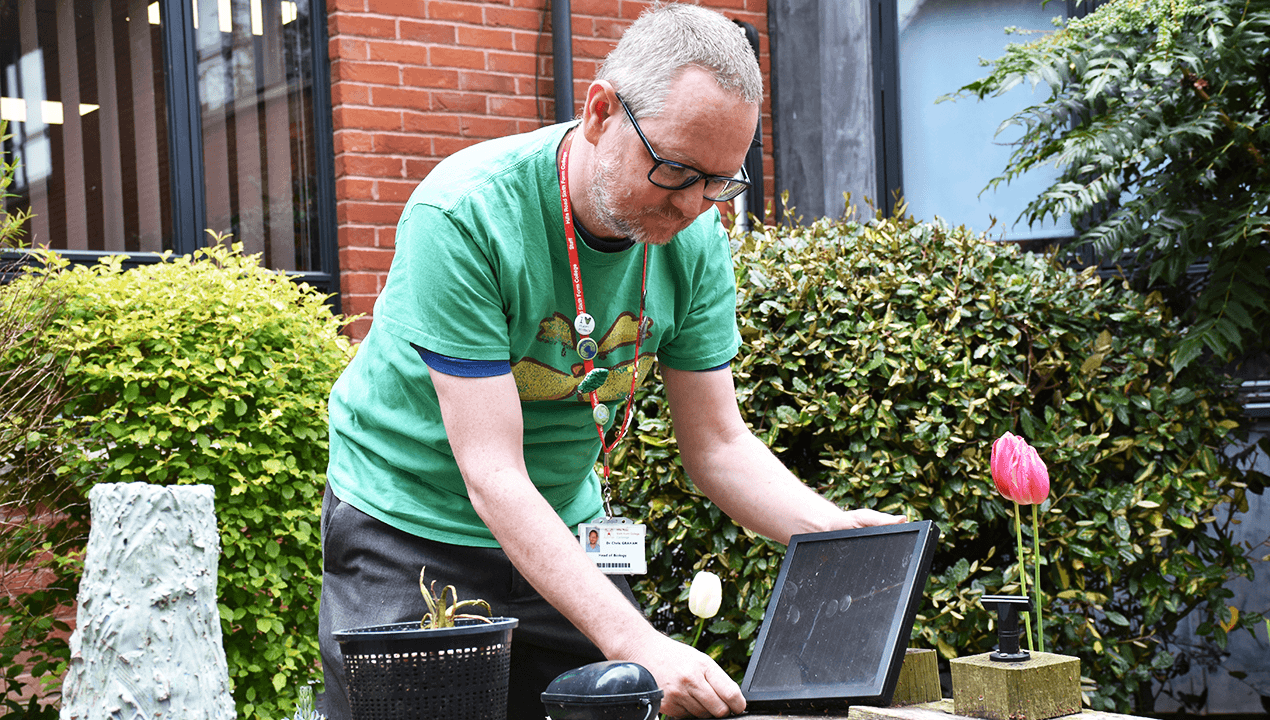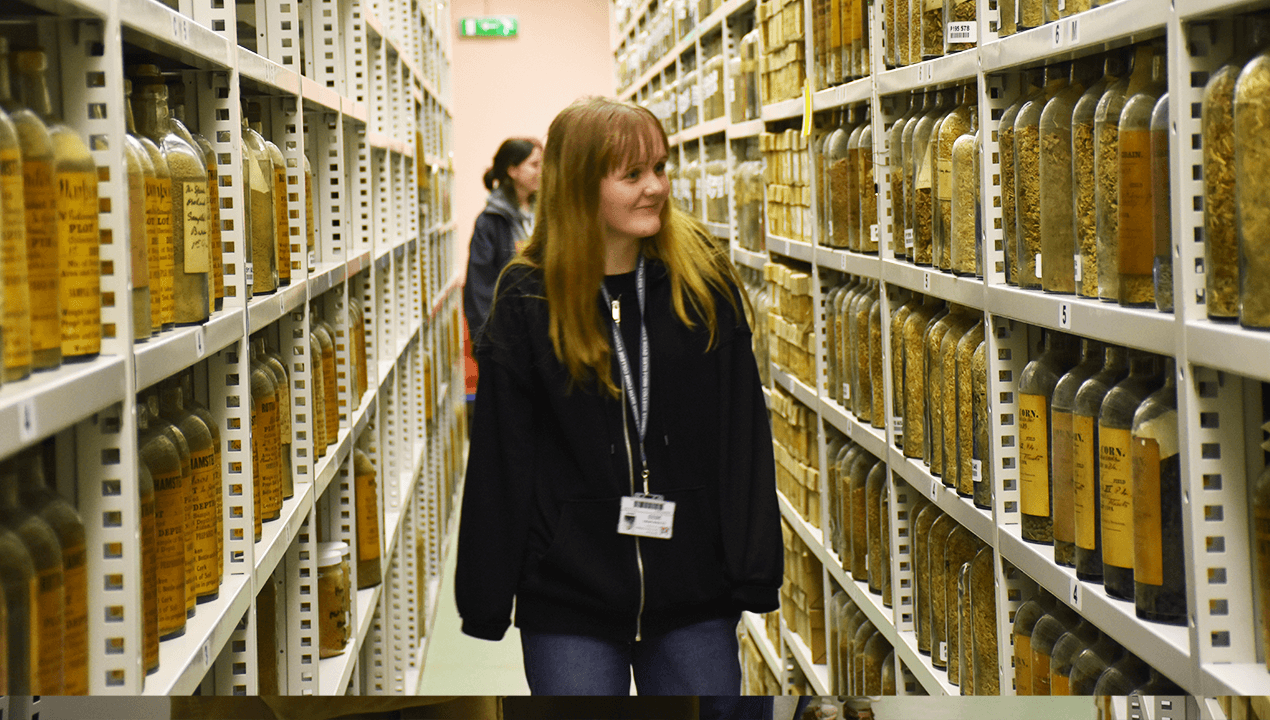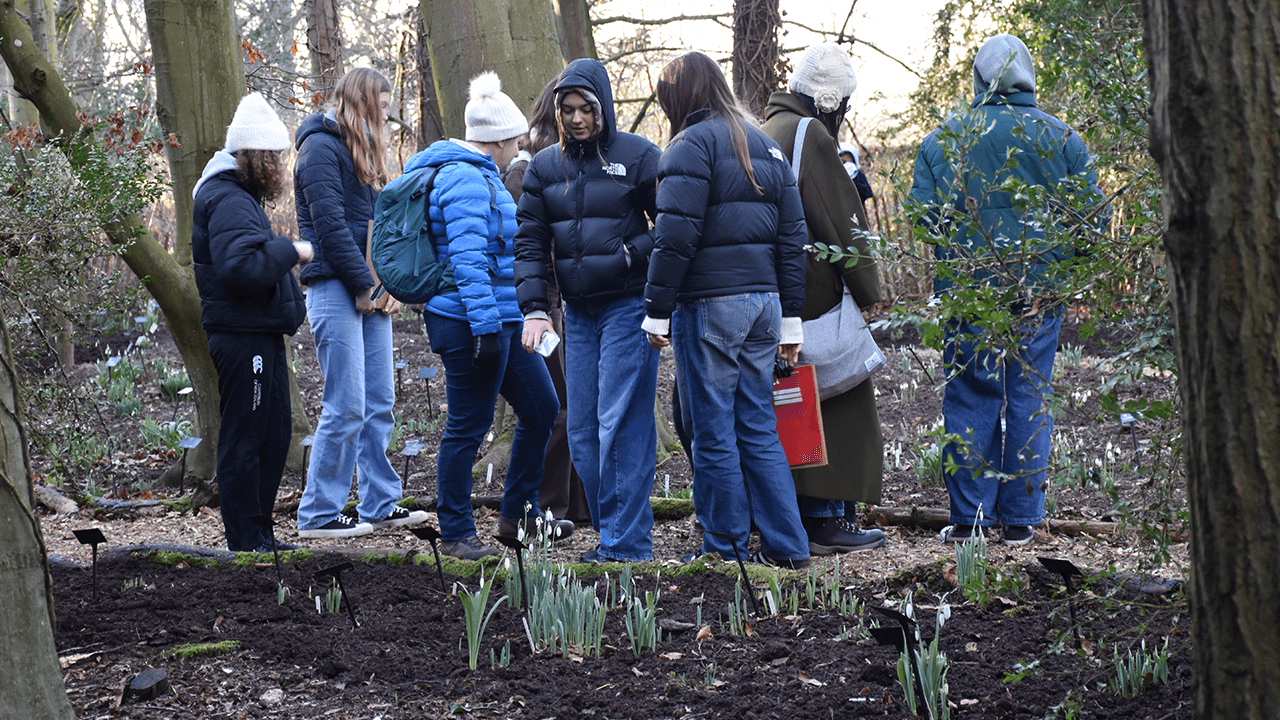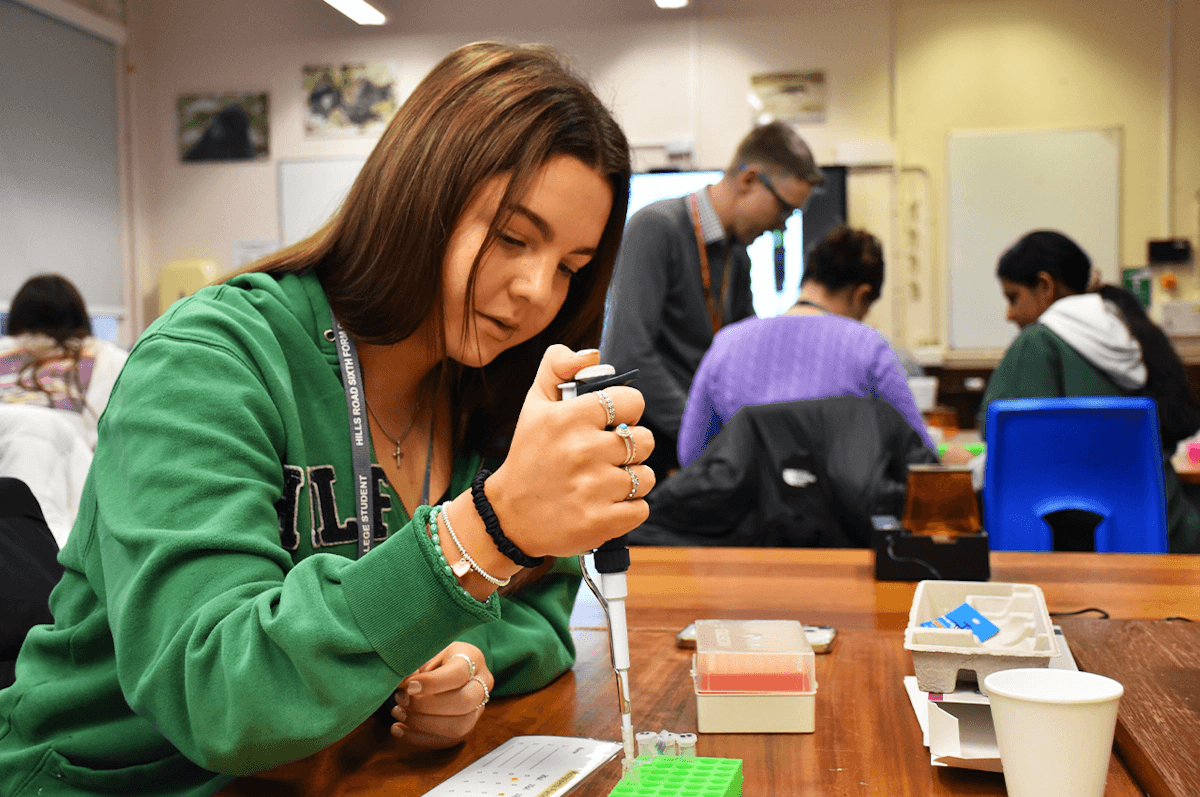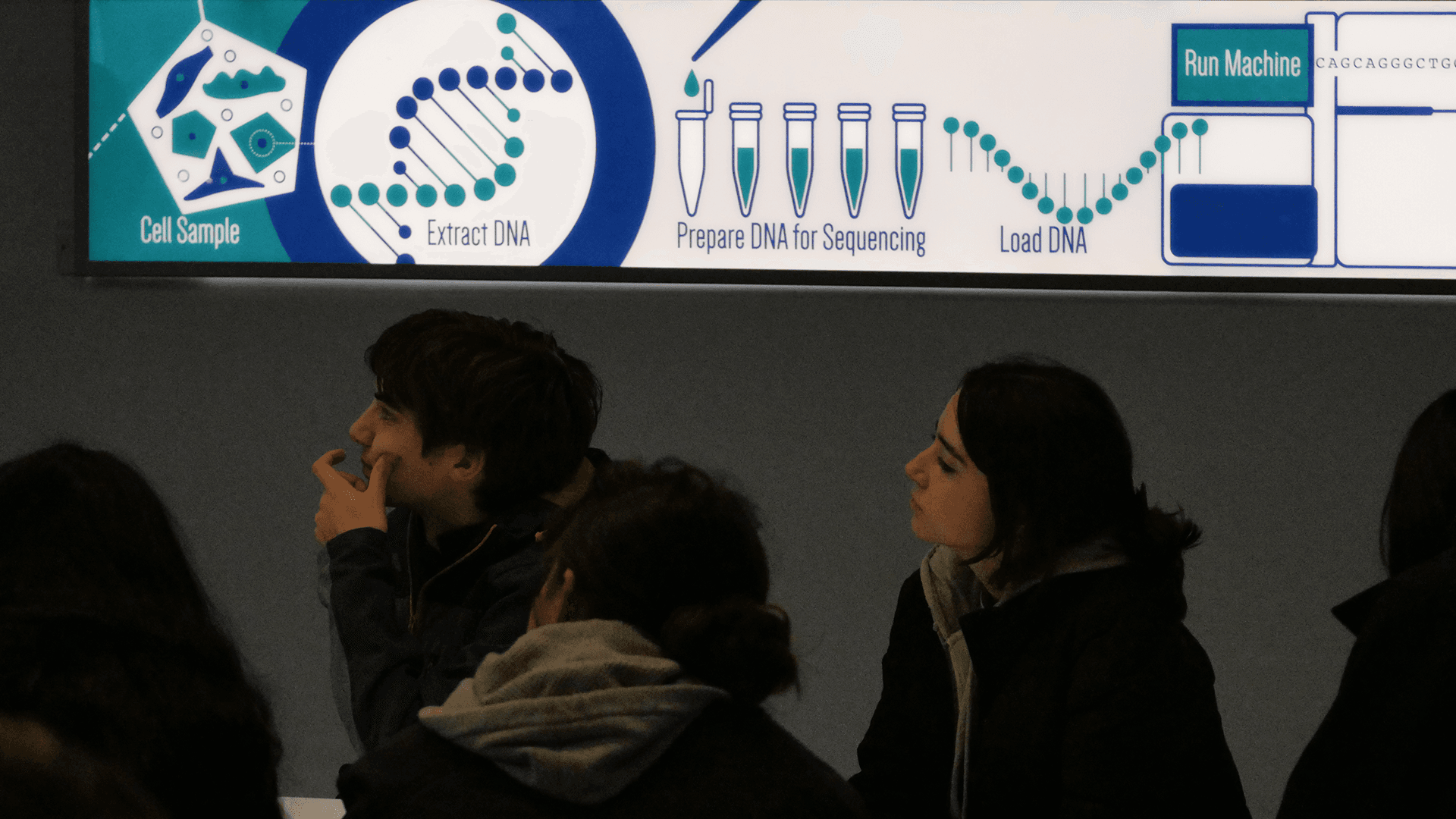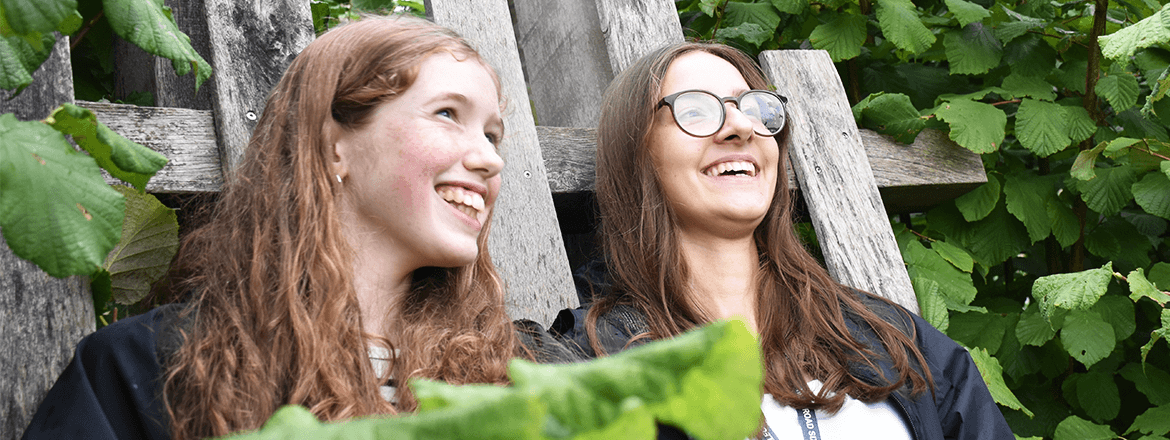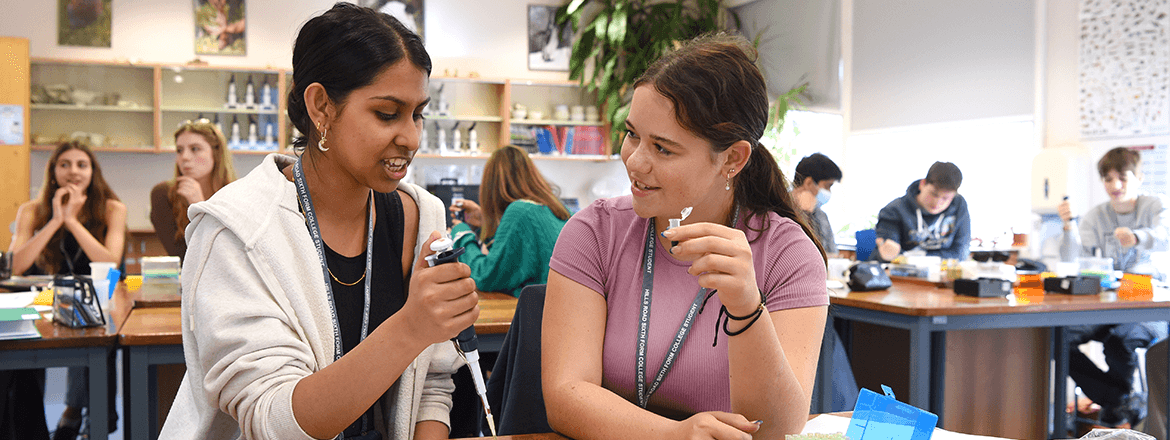Hills granted funding for groundbreaking student-led research
Hills Road has received funding from The Royal Society to give students the opportunity to conduct novel research as part of a large, sustained collaborative investigation.
Published on 28/06/2023
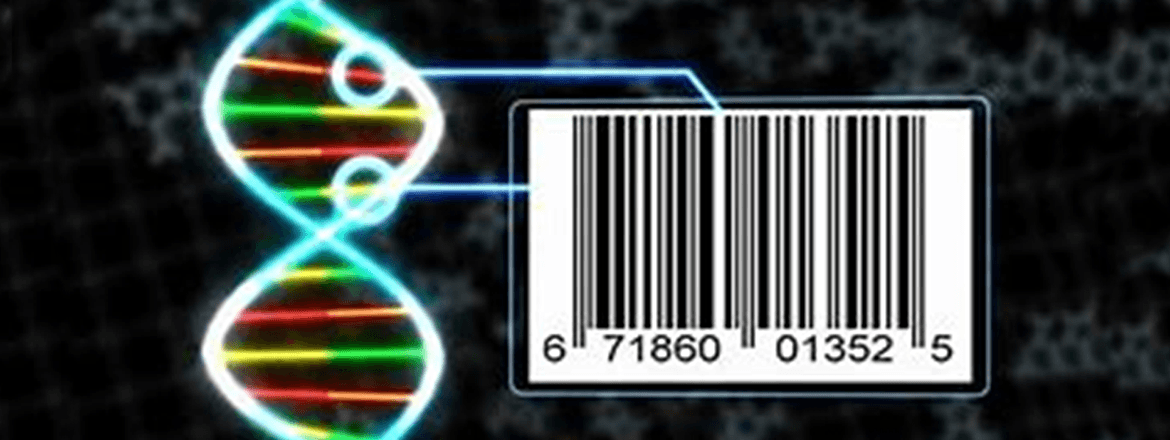
Groundbreaking student-led research
This project will provide both hands-on experience of horticulture, molecular genetics and bioinformatics, and access to scientists who can share their experience of pursuing these careers.
The Snowdrop DNA Project will be the first piece of research ever to use DNA barcoding to discover relationships between different species of snowdrops. The aim of this research is to uncover, from DNA sequence similarities and differences, how different snowdrop species have evolved from a common ancestor.
What are ‘species’ and ‘DNA barcodes’?
Species are groups of individuals that can breed with each other to produce fertile offspring. A DNA barcode can be used to identify a species, as it will be common to organisms of the same species but vary between species. The barcode for plant species is obtained by sequencing the DNA of chloroplasts in the plant cells.
Comparison of DNA barcodes allows identification of how closely species are related. Our project will try to find the phylogenetic, or evolutionary, relationships between snowdrop species that have common ancestors.
More about The Snowdrop DNA Project
Students will work alongside experts at National Trust’s Anglesey Abbey to identify snowdrop species, visit the state-of-the-art science laboratories at Rothamsted Research to carry out DNA sequencing and work with bioinformaticians from the internationally renowned European Bioinformatics Institute to find similarities in the DNA sequences.
Throughout this process, students will be encouraged to communicate with scientists, other students, and the public.
If you would like to be part of this new and exciting project, which will be part of the enrichment programme in September 2023 at Hills Road, then you can contact Karen Stephens at: kstephens@hillsroad.ac.uk

